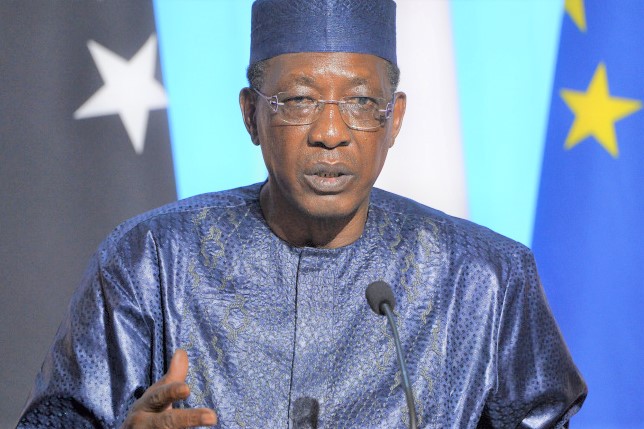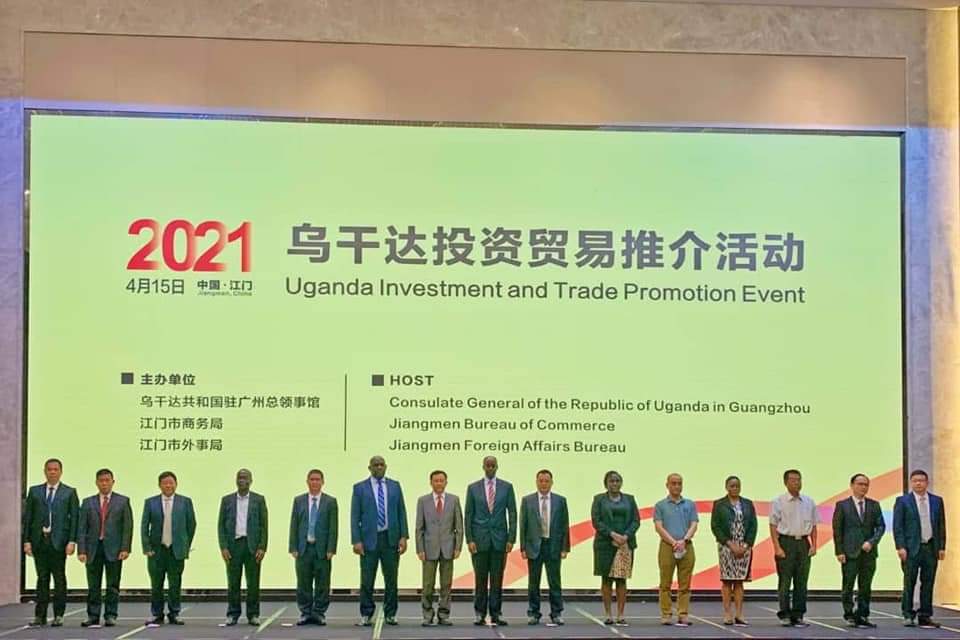
N’DJAMENA – Chadian President Idriss Déby Itno, who has been in power for 30 years, died on Tuesday from injuries sustained while commanding his army in fighting against rebels in the north over the weekend, a spokesman announced on state television.
“The president of the republic, head of state, supreme head of the army, Idriss Déby Itno, has just breathed his last while defending the territorial integrity on the battlefield.
“It is with deep bitterness that we announce to the Chadian people the death this Tuesday, April 20, 2021 of the Marshal of Chad,” announced the army spokesman, General Azem Bermandoa Agouna, in a statement read on TV Chad.
Mr Déby, 68, a career military officer who seized power in 1990 in a coup, was promoted to the rank of Field Marshal last August.
He was re-elected for a six-year term with 79.32% of the votes cast, according to provisional results announced on Monday evening by the national electoral body.
He is also head of the ruling Patriotic Salvation Movement. Déby is of the Bidyat clan of the Zaghawa ethnic group.

Ministers and senior officers said on Monday that the head of state had visited the frontline between his army and a column of rebels who had launched an offensive from rear bases in Libya on election day, April 11.
The rebels, whom the army claimed to have defeated in the fighting, had said in a statement that Mr Déby had been wounded, but the information had not been confirmed by official sources.
But who was Deby?
General Idriss Déby Itno, a military powerhouse and one of Africa’s longest-serving leaders was born in 1952 into a family of herders of the Zaghawa ethnic group in northeastern Chad.
A young Déby joined the army in the early 1970s when the country was in the midst of a long-running civil war to later leave for France where he obtained a military pilot license.
His return in 78 saw him get behind Hissène Habré — then serving as prime minister, who was also head of one of the rebel groups.
Déby was instrumental in the coup that brought Habré to power in 1982 — distinguishing himself a brilliant military strategist, which garnered him the position of Commander-in-Chief of the armed forces.
Relations soured with Habré and the young militant with political aspirations fled into exile before returning to N’Djamena in late 1990 to seize power by force.
A national conference was held in 1993 to establish a transitional government, and Déby was officially designated interim president.
1996 saw a new constitution approved, and Déby was elected president in the first multiparty presidential elections held in Chad’s history — albeit amid allegations of electoral fraud.
A position he would occupy for the next three decades — attaining re-elections under similar controversial political circumstances during his lifetime presidency.
When Déby was reelected in 2001, it was again amid allegations of widespread voting irregularities.
A 2005 constitutional referendum that eliminated presidential term limits was denounced by critics as another means of supporting the president’s increasingly autocratic rule. Nonetheless, the referendum passed, clearing the way for Déby’s reelection in 2006 in a poll that was boycotted by most of the opposition.
He was reelected in 2011, again in a poll that was boycotted by the country’s most prominent opposition figures.
President Déby’s administration was criticised for corruption, misuse of natural resources and brutally repressing individual freedoms.
Nevertheless, in his later years Cerca 2011 as Chad’s leader, President Idriss Déby Itno was internationally lauded for building a formidable army, known as one of the most capable in Africa.
Forces considered indispensable in the fight against terrorism who have intervened in the Central African Republic confronted Al-Qaeda in the Islamic Maghreb in Mali and won significant battles against Boko Haram.
Throughout his presidency, Déby repeatedly faced resistance in the form of coup attempts and rebel activity that ultimately saw the end of his life on the battlefield — true to his legacy as the Chadian military strongman that he was, to many both on the African continent and within the international community.
Chadians react to Deby’s shocking death
Residents of Chad’s capital have reacted with disbelief to the news of President Deby’s death.
Deby, who ruled the central African nation for more than three decades, died Tuesday of wounds suffered on the battlefield during a fight against rebels.
The stunning announcement of Deby’s death came hours after the country’s electoral officials had declared deceased as the winner of the April 11 presidential election, paving the way for him to stay in power for six more years.
The circumstances of Deby’s death could not immediately be independently confirmed due to the remote location. It was not known why the president would have visited the area or participated in ongoing clashes with the rebels who opposed his rule.
The military said Deby had taken ‘the heroic lead in combat operations against terrorists who had come from Libya.’ After being wounded in battle, he was taken to the capital, according to the army.
However, some foreign observers questioned how a head of state could have been killed, saying it cast doubt on his protective guard.
The Chadian military had only acknowledged five deaths in the weekend fighting in which it said it had killed 300 rebels.
An 18-month transitional council led by Deby’s 37-year-old son – Mahamat Idriss Deby Itno, the military said, will be in charge. The authorities also imposed a nightly curfew, starting at 6 p.m.
Tense situation in Chad
President Déby, who had just been elected for a sixth term of office, died of wounds sustained while commanding his army against the FACT rebels. In N’djamena, after the death was announced – a military council led by Mahamat Déby, 37, took over power as a transitional government.
Confident and reassuring were the watchwords of President Déby on April 11 in Chad, except that during this presidential election, the rebels of FACT – the Front for Change and Concord in Chad, were conducting offensives in the north of the country in the province of Kanem, more than 300 km from the capital N’djamena. Worried, Idriss Déby decided to invite himself to the front line.
After the elections, the day after the news began to flow, it was established that the rebels had already started taking towns in the north of the country. Other sources, revealed that when rebels arrived in some the towns, soldiers surrendered without any resistance and joined them. The situation forced President Déby to take to the front-line, hoping that he would prevent the disorder from reaching N’Djamena.
A curfew is in force in Chad, the country has closed its borders with its neighbours, and the transitional military council has dissolved the government and the national assembly and announced a period of 18 months before new elections are held. A coup d’état according to several observers, as the constitution in its articles 81 and 82 requires that power be transferred to the president of the National Assembly.
Sources maintain that other columns of rebels are planning to attack the capital because they consider the death of Déby as a victory; leading to a tension situation.
The death of President Déby has created a big gap in the fight against terrorism in the eyes of France, according to the country’s Defence Minister Florence Parly, who despite the loss, reminded allies on Tuesday that the anti-jihadist battle in the region wasn’t over.





